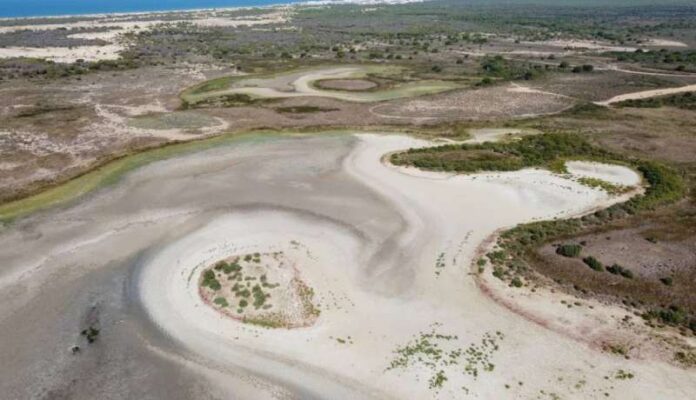Once home to abundant aquatic life and large colonies of migratory birds the Santa Olala lagoon is now a white, cracked land in the Doñana National Park in southern Spain.
For the second year in a row, this lake has completely dried up, due to the effects of climate change but also due to intensive agriculture and excessive tourism in the area, at a time when Santa Olala was the only lake to remain submerged, even during the hot summers that southern Spain experienced. Doñana Andalusia Park, which is included in the UNESCO World Heritage List, has become a symbol of water scarcity in Spain, which currently faces 75 percent of its lands in a climate that may lead to desertification, reports Al-Rai daily.
“Recent years have been marked by severe drought, which is a common situation in an area characterized by a Mediterranean climate,” said researcher at the Doñana Biological Station, Carmen Dias Paniagua, via Agence France-Presse.
In recent years, the surface of the lake, which reaches its highest levels in normal conditions, has shrunk to more than 45 hectares, while the biological station has never noticed a complete drought affecting it for two consecutive summers.
This sad observation was confirmed by official data released this week. Where once the park horses drank from the lake surrounded by storks and pink flamingos, they now graze on their own, trying to eat the small amounts of grass that emerge from the sand or cracked ground.
Environmental associations continue to denounce the agricultural policies adopted in Spain in recent years, which have also been criticized by the European Commission.
For its part, UNESCO warned that the irrigation bill recently introduced by the Spanish government could cause the park to be removed from its World Heritage list.
The bill, which was submitted to the regional parliament, aims to settle hundreds of hectares of illegal cultivation of the red fruit around the park.
In 2014, the authorities of the region, which was led by the Socialists at the time, issued a law making it possible to re-cultivate strawberries in nine thousand hectares of land, after this cultivation had witnessed years of chaotic prosperity. But the rightists assert that “hundreds of farmers have been excluded.”
The Doñana issue was taken up at the national level in the municipal and regional election campaign in May and the legislative in July, in a country whose farmers consume 80 percent of the fresh water resources.

















